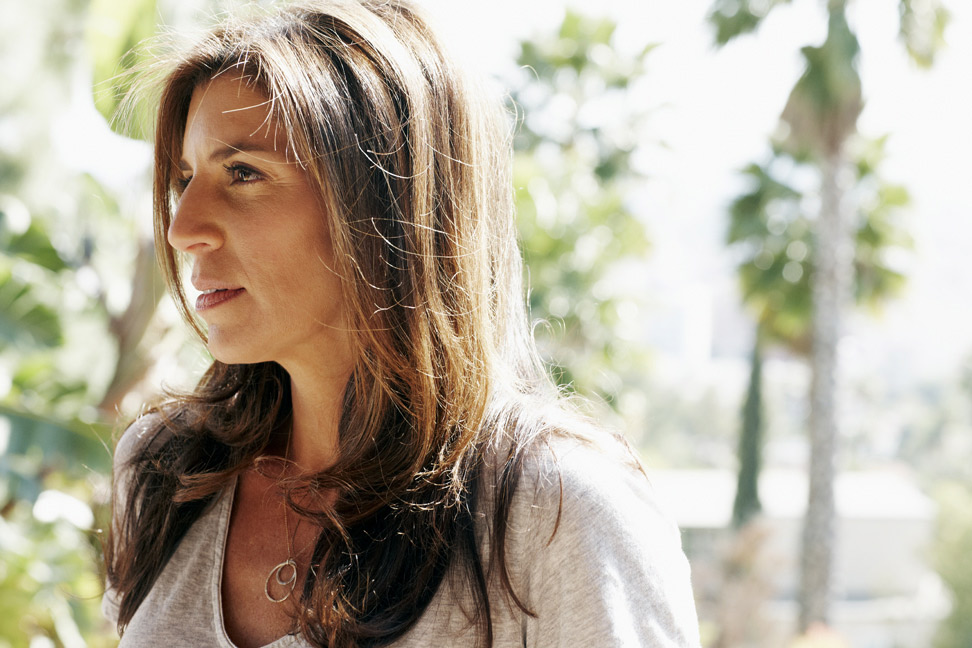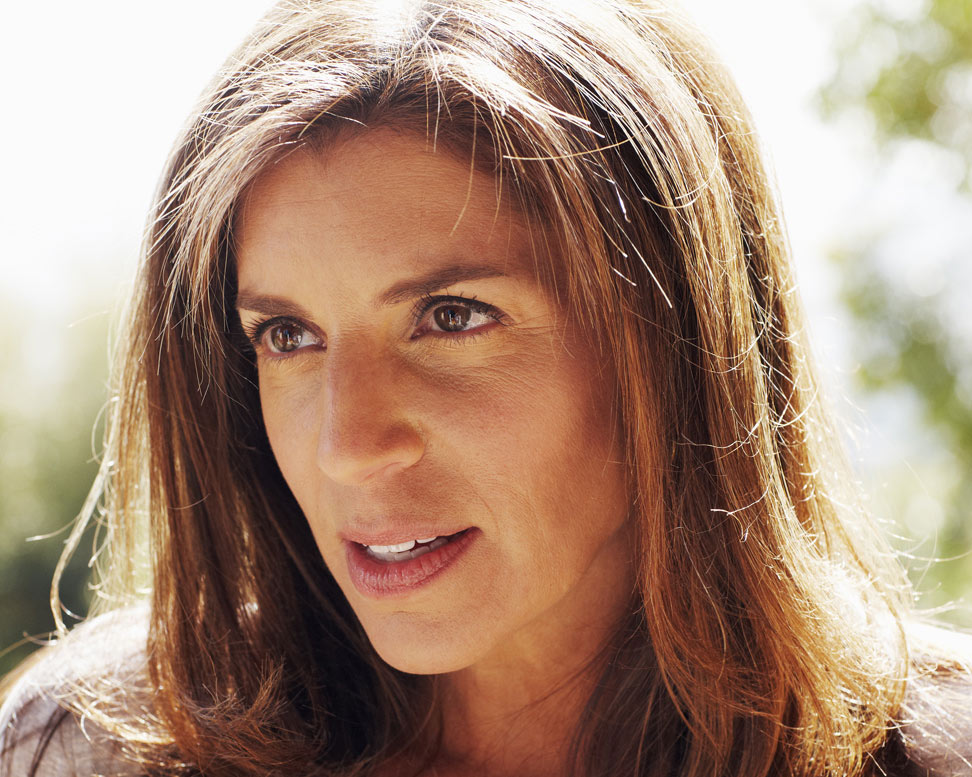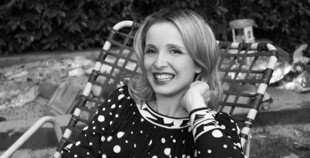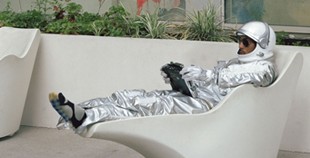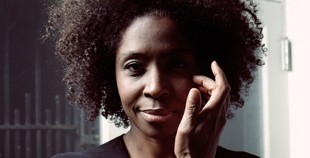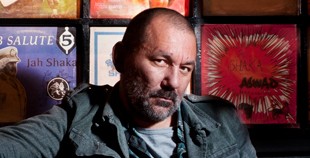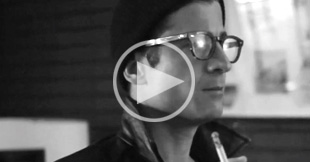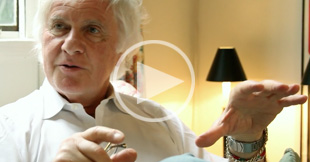
Transforming Her Family Tradition of Tastemaking In A Virtual World
Interviewed by Cara Trump / Photographed by Naj Jamai
Don’t try to label Sally Horchow; she won’t let you. While most people strive for titles and qualities that define their personalities, Horchow seeks the opposite. From writing articles for The Wall Street Journal and producing an independent film to event planning and interior designing, Horchow won’t sit still long enough for you to even come up with a label. Now, with a new website launched and a Broadway play to produce, she isn’t slowing down.
Horchow’s upbringing afforded her the luxury of pursuing such varied interests. Her father, Roger Horchow, started The Horchow Collection, the first luxury mail-order catalog. “It was the first catalog that was not based in a retail store, so it was innovative at that time,” she explains, “My dad started that company in 1971, and I was born in 1970, so my childhood was greatly influenced by all the work that he was doing.”
Because of the nature of her father’s business, Horchow was often exposed to different people and cultures. “Back then, to buy items for a catalog you would go to China or India to meet with artisans, so when I was growing up there would be lots of different, interesting people from all over the world, who would come to the house, that he had met on those buying trips,” she says. “They even had this joke between them…the meeting would end, and the Chinese man would say, ‘We’re going to try to sell a lot of things,’ and my dad would always say, ‘Yes, we are. We have to pay for little Sally’s shoes!’”
And pay for little Sally’s shoes, it did, as well as little Sally’s Ivy League education. After applying to numerous colleges, Horchow finally decided to attend her father’s alma mater. “I definitely did not want to go to Yale, because I wanted to rebel, but then I went to visit a friend there. I really liked it, so I applied. My dad never said anything to me pressuring me to go there, even though he secretly really wanted me to.”
Horchow admits that her upbringing of privilege and financial stability contributed to her success early on. “I had the best education possible, which definitely gave me a leg up in the world, but after my one year of working in the theater after college (a job introduction I likely got because my dad was then a Broadway producer), I never got another job because of my Yale diploma or my dad’s name,” Horchow explains, “NBC, Steven Spielberg and the magazines I wrote for didn’t really care about the Ivy League or my dad’s mail order success.”
But Horchow eventually realized that with seemingly endless resources comes a feeling of invincibility. “My upbringing gave me a confidence—a fearlessness—and a work ethic that others’ might not have. The only obstacle I have faced because of my upbringing is a psychological one: it’s the very unrealistic notion, put in place by my very supportive parents, that I can achieve success at anything I set my mind to. Unfortunately, TV executives won’t buy your show pitch or make you a household name just because your mom thinks they should.”
When her mother Carolyn passed away in 2009, her professional life took a back seat to her family. Six weeks before her mother died, Horchow flew back home to Dallas to be with her, when before, she would avoid being home for more than three or four days at a time. “I’m so glad I was there, but it was the most difficult thing I’ve been a part of,” she admits, “I was really very sad, and I didn’t produce much work-wise for about a year. I tried to write a book of essays about her, but it was too depressing to get up every day and do that.”
Just two years after her mother’s death, Horchow was finally able to do something to honor her. Horchow’s new website, VeryGoodLooking.com, was inspired by a phrase her mother would often use to describe something that she thought was in good taste. According to Horchow, whether it was an outfit or a table setting she liked, it was always “very good looking.”
“Everything about the site and the show goes through a rigorous imaginary vetting process with my mom, so that I can confidently say she would deem it very good-looking,” she confesses.
In developing their own personal tastes, Roger and Carolyn Horchow showed their daughter how to find her own preferences, and this is what she wants to do for her viewers. “It’s the process of creating your own taste in anything that is fun, and that is what I’m trying to develop,” she explains, “It’s my evolving taste journey and helping others along on theirs.”
Horchow’s face brightens as she talks about her mother and the exciting new project she influenced. “For her, it was the ultimate compliment,” she smiles, “but for me, I’m using it to encompass a lot more than just stuff.” Horchow’s vision for the show’s topics is for them to be as varied as her interests—from friendship advice to home decorating tips.
“I’ve really done a lot of soul searching and research; I want everything to reflect my feelings about those words,” she expresses, “It’s such an interesting phrase, and people probably immediately think it’s about being pretty or me thinking I’m very good looking, so I immediately want to put people at ease with the way I am by just being accessible.”
An important aspect of any start-up, especially in today’s economy, is accessibility, but Horchow doesn’t seem worried about Very Good Looking coming off as pretentious or elitist. “VGL is approachable, and it’s accessible to most everyone,” she says, and then concedes, “Okay, so maybe not everyone could benefit from tips for packing a small suitcase, or how to do a professional facial at home, but they will hopefully enjoy hearing about it anyway.” Horchow goes on to say that the show also covers DIY topics such as making pasta from scratch, friendship tips, and designing a ‘mantelscape,’ which speak to a wider audience.
In addition to the website, Horchow is producing the revival of “Annie” on Broadway. When her father became involved with producing Broadway plays, Horchow was a senior in college and was able to experience the entire process. “My dad always wanted to produce a Gershwin musical, so he partnered with someone and they produced ‘Crazy For You,’ which was a big hit on Broadway.” She would often take the train to New York from school to watch rehearsals and was even there for opening night. “I would say the opening night of ‘Crazy For You’ was probably the most exciting night of my life—more than my wedding or anything,” she laughs.
So when Horchow found out about her father’s plans to produce another show and discovered it was one of her favorite musicals (she even has a dog named Annie), she asked to be a producer. “I well up with tears in the meetings because I’m so excited about it,” she says.
A man next to us hears our discussion about musicals and uses the opportunity to tell us about the musical he’s performing in. Sally is polite and engaged as he shares his passion and, when he and his friend leave, his friend hands Sally a flyer for a company or show. She laughs, says thank you and we continue the interview. “That’s so funny. I did a video for the website—I’m doing three-minute segments and then these little quick tips which are 30 seconds to a minute and the one we worked on this morning is a rule from The Art of Friendship: eavesdrop politely. And it’s all about, not to butt in on people’s business, but if you happen to hear something, it’s sometimes a way into a friendship. So that’s so funny that that just happened.”
The Art of Friendship: 70 Simple Rules for Making Meaningful Connections is a book Horchow wrote with her father. After being including in Malcolm Gladwell’s bestseller The Tipping Point as an example of a connector, or a person who knows and introduces a lot of people¬, Roger Horchow was asked to write a book about what it means to be a connector. “It’s somebody who collects friends, or who is interested in people, and how they’re connected to each other above all else, for no ulterior motive,” she elaborates, “It’s not networking—they’re just interested in people. They collect them, and they have different friends of all different walks.”
Horchow, a connector herself, quickly became involved in the project. “The literary agent who became interested in it thought that it would, because I’m a writer, be fun to write it together—mostly because they thought it would be interesting if it were a father/daughter, he said/she said perspective on two generations of connecting and friendships,” she explains, “But while we were working on it, it became very clear that I am my father’s daughter, and we think very much alike. The ways that I approach friendship in my generation are the same as his.”
Horchow’s favorite way of connecting: dinner parties. “I love to cook and entertain,” she professes, “I get to bring people together and see the looks on their faces when they have a great conversation with somebody or meet somebody they don’t know. All aspects of it just give me such pleasure—laughing with friends and sharing food together. It’s a celebration of friendship. That to me is the stuff of life. That’s what it’s all about.”

